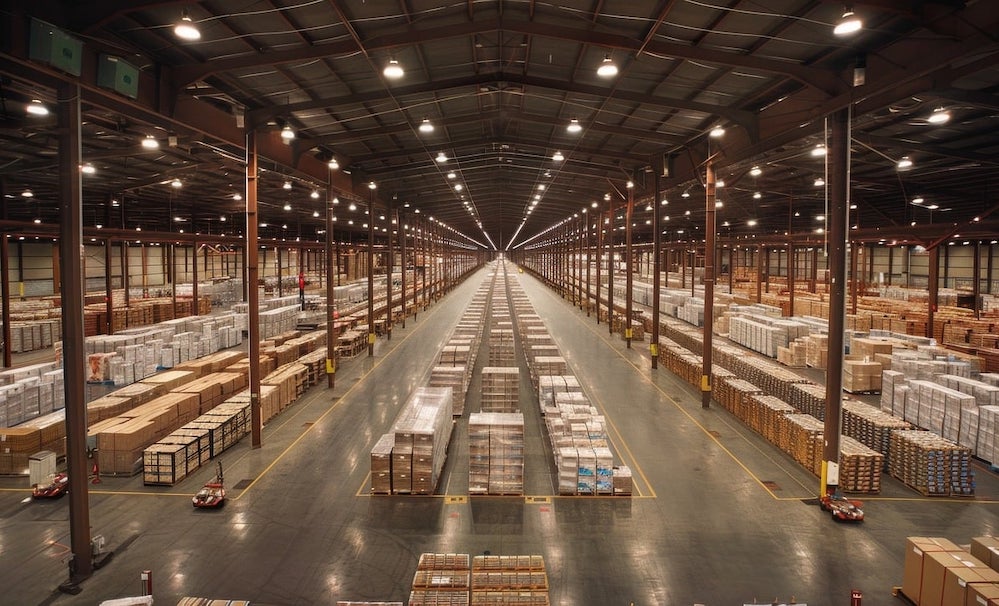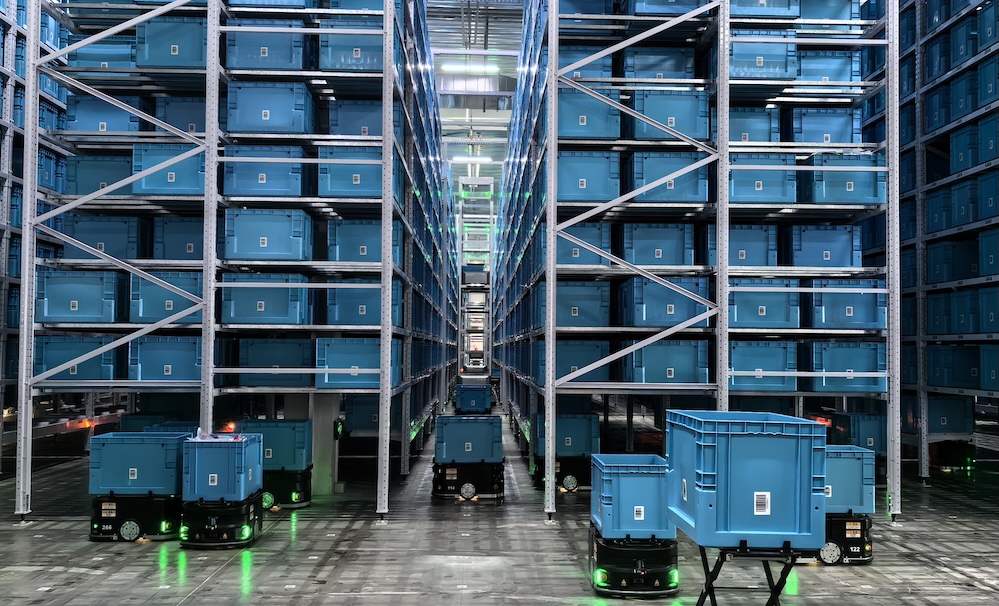As businesses grow and the demand for faster delivery times increases, the importance of streamlined warehouse operations cannot be overstated. With the right systems in place, companies can enhance their supply chain efficiency, reduce costs, and improve overall customer satisfaction. Advanced warehouse management solutions enable better coordination between storage and transportation, ensuring that goods move smoothly from warehouse to delivery. This not only speeds up the entire logistics process but also minimises errors and maximises resource utilisation. By integrating modern technology and innovative practices, businesses can transform their warehouse operations into a competitive advantage, driving success in a demanding market. This article delves into the critical aspects of efficient warehouse management and how it can revolutionise freight logistics.
Streamlining Inventory Control for Faster Freight Processing
Effective inventory control is pivotal to accelerating freight processing. By implementing advanced warehouse management systems (WMS), businesses can achieve precise inventory tracking and management. Automated systems provide real-time visibility into stock levels, locations, and movements, reducing the time spent on manual checks and adjustments. This level of control allows for quicker picking, packing, and shipping processes, ultimately speeding up the entire supply chain.
Inventory control solutions often include features like barcode scanning, RFID tagging, and automated data entry, which eliminate human error and ensure accurate stock records. These technologies help in maintaining optimal stock levels, preventing overstocking or stockouts, which can cause delays. Furthermore, efficient inventory management supports better planning and forecasting, enabling companies to anticipate demand and adjust their logistics strategies accordingly. By streamlining these processes, businesses can ensure that their freight operations run smoothly and efficiently, meeting customer expectations for timely deliveries.
Integrating Warehouse Management Systems with Transportation Networks
Integrating warehouse management systems with transportation networks is crucial for enhancing overall logistics efficiency. A seamless connection between these two components ensures that goods move swiftly from storage to transport, reducing delays and bottlenecks. Advanced WMS can communicate directly with transportation management systems (TMS), providing real-time data on inventory status, order fulfilment, and shipment schedules.
This integration allows for better coordination and planning, as logistics managers can make informed decisions based on accurate, up-to-date information. For instance, when a shipment is ready for dispatch, the WMS can automatically notify the TMS, which can then arrange for the appropriate transportation. This reduces the lag time between order fulfilment and shipping, ensuring that deliveries are made promptly.
Moreover, integrating these systems helps in tracking shipments more effectively. Both warehouse and transportation managers can monitor the progress of deliveries, handle exceptions, and address issues proactively. This level of oversight enhances accountability and ensures that any disruptions in the supply chain are quickly resolved. Overall, the integration of WMS and TMS streamlines operations, optimises resource use, and improves service reliability, which is essential for maintaining a competitive edge in the logistics sector.
Reducing Costs and Increasing Efficiency through Automation
Automation plays a vital role in reducing costs and increasing efficiency in warehouse management. By integrating automated technologies, such as robotic picking systems and automated guided vehicles (AGVs), businesses can significantly cut down on manual labour costs. These technologies ensure faster and more precise handling of goods, reducing the likelihood of errors and improving overall productivity.
Automated warehouse systems also facilitate better space utilisation. Automated storage and retrieval systems (AS/RS) can maximise vertical space, allowing for higher density storage and more efficient use of warehouse real estate. This not only reduces the need for additional storage facilities but also lowers energy and maintenance costs.
Moreover, automation streamlines various warehouse processes, such as sorting, packing, and shipping. Automated conveyor systems and sortation equipment ensure that goods are processed quickly and accurately, minimising delays and bottlenecks. This level of efficiency helps in meeting customer demands for faster deliveries and reducing operational costs.
Additionally, automated data collection tools, like barcode scanners and RFID systems, enhance inventory management by providing real-time updates on stock levels and movements. This improves inventory accuracy and helps in better planning and forecasting, ultimately reducing excess stock and associated holding costs. By leveraging automation, businesses can achieve significant cost savings and operational efficiencies, driving success in a competitive market.
Choosing the Right Warehouse Management Solution for Your Haulage Business
Selecting the appropriate warehouse management system (WMS) for your haulage business is crucial for optimising operations. Among the various options available, Korber WMS stands out for its comprehensive features and flexibility. Korber WMS is designed to cater to diverse business needs, providing robust solutions for inventory management, order fulfilment, and transportation coordination.
When evaluating a warehouse management system, consider the scalability and adaptability of the solution. A good WMS should grow with your business and accommodate changing demands. Korber WMS offers scalable options that can be customised to fit specific operational requirements, ensuring that your warehouse systems remain efficient and effective over time.
Integration capabilities are another critical factor. Your chosen WMS should seamlessly connect with existing transportation management systems (TMS) and other supply chain technologies. Korber WMS excels in this regard, providing smooth integration that enhances overall logistics efficiency. This connectivity ensures real-time data flow between warehouse operations and transportation networks, improving coordination and reducing delays.
User-friendliness and support are also essential. A WMS that is easy to use and comes with robust customer support can significantly reduce the learning curve and enhance productivity. Korber WMS is known for its intuitive interface and comprehensive support services, making it an ideal choice for businesses looking to optimise their warehouse operations.
Improving Accuracy and Reducing Errors in Freight Logistics
Enhancing accuracy and reducing errors in freight logistics are fundamental to maintaining a competitive edge. Implementing advanced warehouse management systems (WMS) can significantly improve the precision of warehouse operations. Automated data collection tools, such as barcode scanners and RFID technology, play a crucial role in this aspect by providing real-time updates on inventory status and movements.
Accurate inventory tracking ensures that stock levels are correctly maintained, preventing issues such as overstocking or stockouts, which can disrupt the supply chain. With a reliable WMS, businesses can achieve higher inventory accuracy, ensuring that the right products are available at the right time. This precision is vital for meeting customer expectations and maintaining high service levels.
Reducing manual data entry is another key benefit of using a WMS. Manual processes are prone to human error, which can lead to incorrect inventory records and order fulfilment issues. Automating these processes minimises the risk of errors, ensuring that data is accurate and up to date. This improves the reliability of the entire logistics operation.
Furthermore, advanced warehouse management systems provide comprehensive reporting and analytics tools. These tools enable businesses to identify and address potential issues before they escalate, ensuring smooth and efficient operations. By improving accuracy and reducing errors, companies can enhance their overall logistics performance, resulting in cost savings, improved customer satisfaction, and a stronger market position.
Conclusion
Efficient warehouse management is a transformative force in freight logistics, driving operational excellence and enhancing competitiveness. By streamlining inventory control, integrating warehouse and transportation systems, and leveraging automation, businesses can significantly improve their logistics processes. These advancements lead to reduced costs, increased efficiency, and higher accuracy in freight handling.
Choosing the right warehouse management system, such as Korber WMS, ensures that haulage businesses can meet the demands of a dynamic market with flexibility and precision. Implementing advanced technologies and innovative practices not only optimises warehouse operations but also enhances customer satisfaction through timely and accurate order fulfilment.
In an industry where precision and efficiency are paramount, investing in a robust warehouse management solution is essential. The benefits of real-time data, reduced errors, and streamlined processes make a compelling case for modernising warehouse operations. By doing so, businesses can transform their freight logistics, achieving sustainable success and growth in a competitive landscape.








